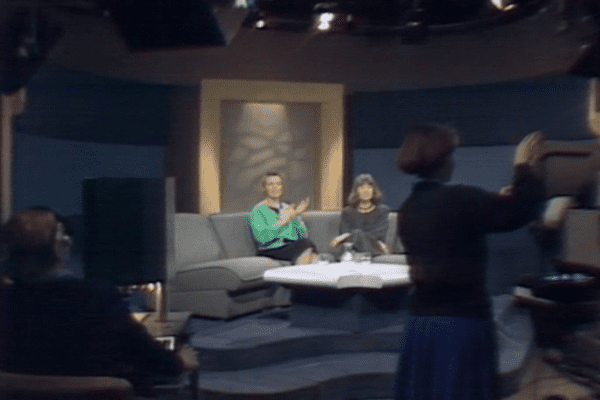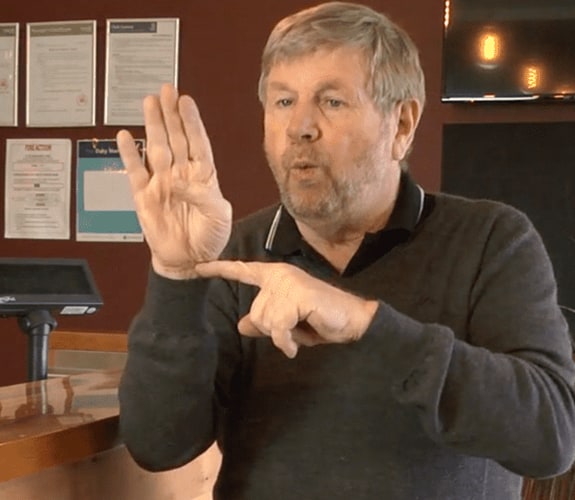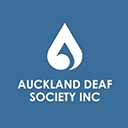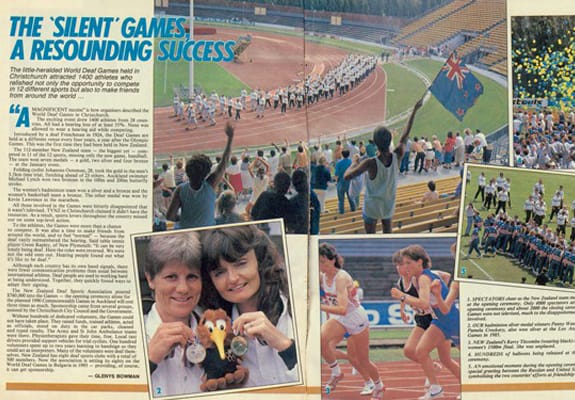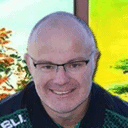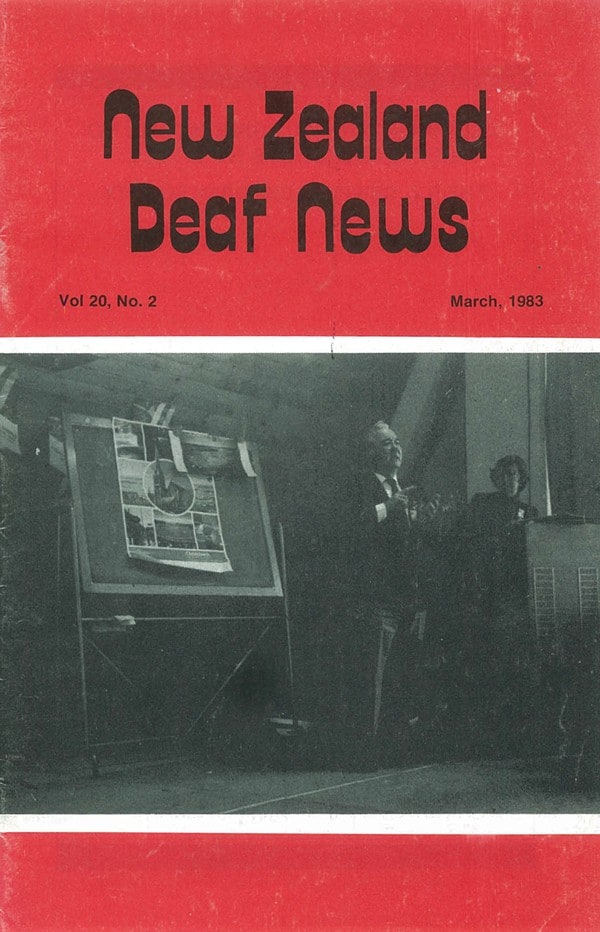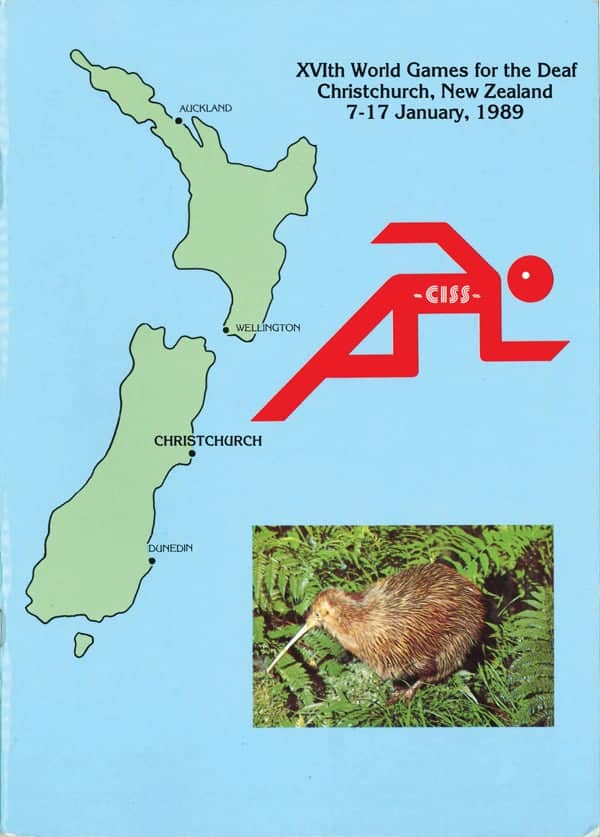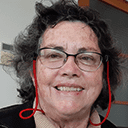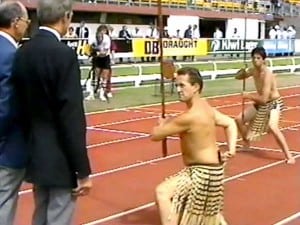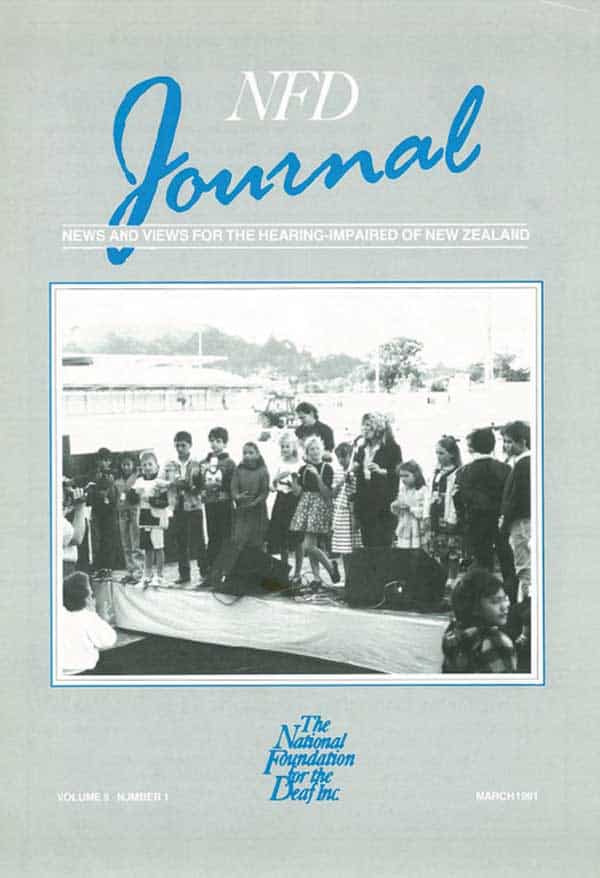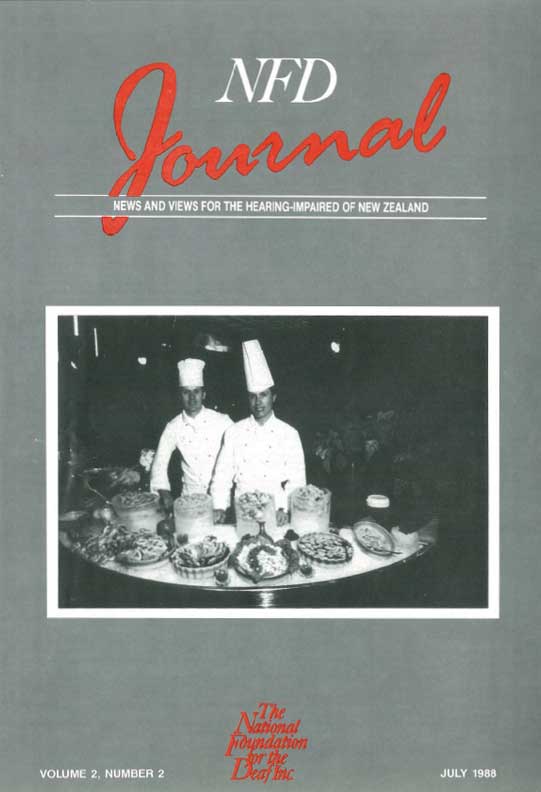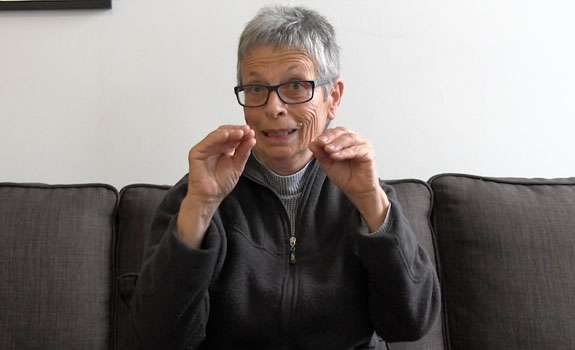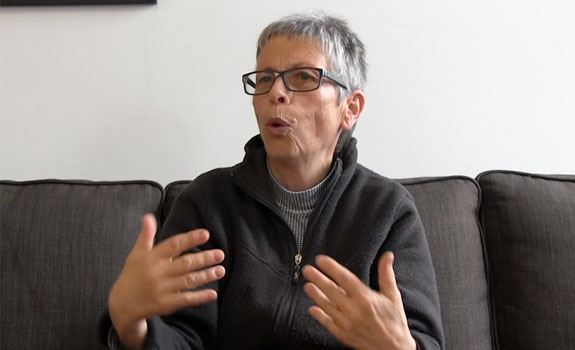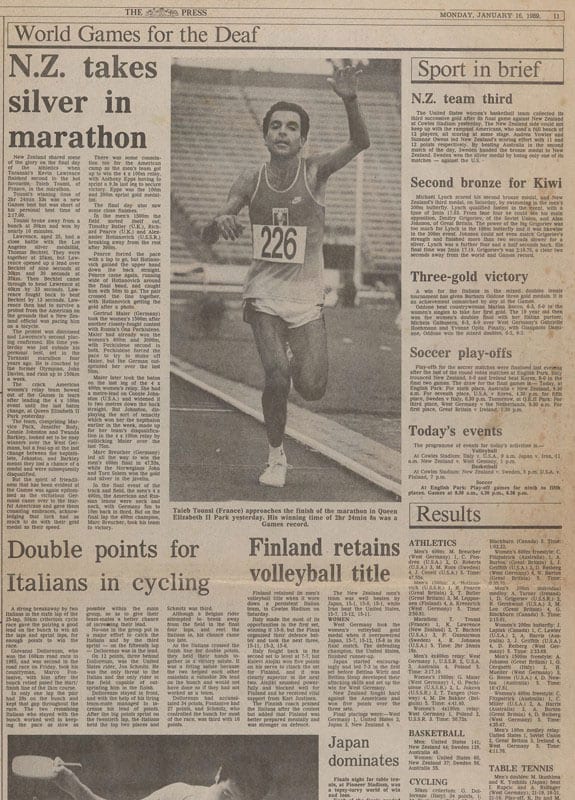Susan Thomas takes the reins this week on ‘News Review’ reviewing action from the World Games of the Deaf which wrapped up on the Tuesday prior to. Watch records being broken, and some footage of our Kiwi athletes in action!
News Review presents a round-up of coverage of the 1989 World Games for the Deaf, where 1400 athletes from 31 countries competing in 12 sports over 11 days. The round-up footage includes:
- Wrestling: Iran, USA, Russia, Bulgaria, Australia
- Basketball: Sweden vs USA (71-78)
- Handball: Italy
- Tennis: Women’s Doubles (Italy v Germany), Men’s Doubles: West Germany, USA),
- Cycling (100km road race), Belgium, Korea, New Zealand, USA, Italy,
- Basketball, USA v NZ (141 - 44), Sweden v Australia (129 - 46)
- Swimming, Women’s 200m medley, Men’s 200m butterfly, Men’s 100m backstroke, Women’s 800m freestyle,
- Football: Great Britain v USA (8-0)
- Athletics: Men’s 400m, Women’s 1500m, Men’s 1500m, Women’s 4x 100m relay, Men’s 4x 100m relay, Women’s 4x 400m relay, Men’s 4x 400m relay,
- Marathon
- Closing ceremony
Did you know handball featured as a competition sport for the first time in the World Deaf Games in Christchurch? Milton Reedy represented Australia in the wrestling, referred to as the ‘Gutsy Maori’, won gold in the 90-100kg freestyle wrestling contest.
Watch our neighbouring swimmer, Cindy-Lou Fitzpatrick, a Deaf Australian secure gold in the Women’s 200m medley and 800m freestyle.
Michael Lynch, a Deaf Kiwi, had the fastest heat time in the 200m mens butterfly and was favoured to win gold. However the race didn’t fall in his favour, and Michael was content with a bronze. A good effort all up!
Please note, footage at the end is interrupted.







